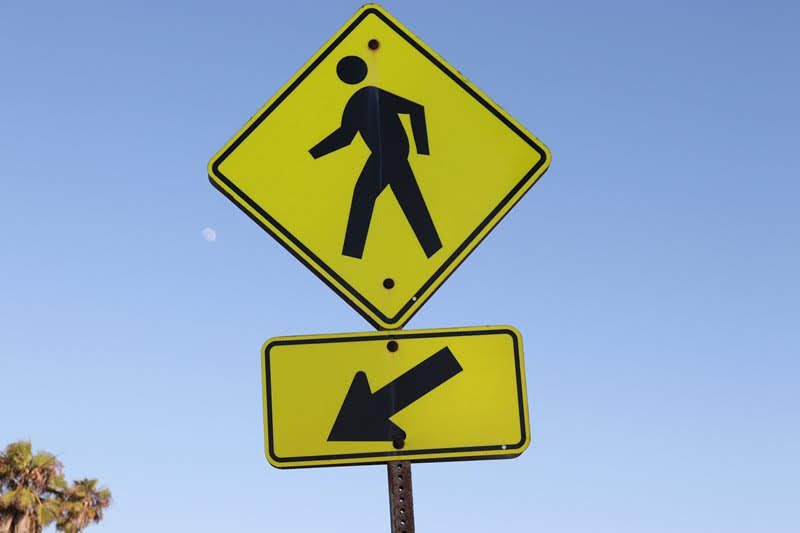Many of us grew up learning to cross at crosswalks and looking both ways before crossing a street. This gives us a sense of security that if we walk on the sidewalk, use crosswalks, and follow the rules, we are safe.
Unfortunately, pedestrian accidents happen often. In fact, according to the National Highway Traffic Safety Administration (NHTSA), more than 75,000 pedestrians are injured yearly. If you or a loved one has been injured in a pedestrian accident, you may be asking, “Who’s at fault? Will the driver’s car insurance cover my medical bills? Is the pedestrian always right?”
Here, we take a closer look at pedestrian accidents and common questions we hear from our clients.
What Is Considered a Pedestrian Accident?
A pedestrian accident refers to a situation where any person who is walking, running, hiking, sitting, or lying down is involved in a crash with a motorized vehicle. Essentially, anyone who is traveling on foot (not on a skateboard, roller skates, bike, etc.) is considered a pedestrian.
Is the Pedestrian Always Right?
Yes, pedestrians are more vulnerable and prone to injury than vehicle passengers in an accident. However, this does not mean the pedestrian is always right and the driver of the motor vehicle is always responsible or liable. While many people say that pedestrians always have the right of way, pedestrians can still be at fault for a pedestrian accident.
Depending on the circumstances of the accident, either the driver, pedestrian, or both may be at fault.
What Is Pedestrian Negligence?
Negligence here indicates responsibility for reckless or dangerous behavior. If a pedestrian chooses to ignore traffic laws (like walking on a sidewalk or crossing at a crosswalk), they can be determined to be negligent and either fully responsible or partially responsible for the pedestrian accident. Common situations where pedestrians are negligent include activities like jaywalking, stepping out from parked cars into the path of oncoming traffic, or crossing against the crosswalk signal.
The main factor in determining negligence or reckless behavior on the part of the pedestrian is whether the pedestrian showed a reasonable level of care and followed traffic rules. If they did not, they can be deemed negligent and at fault for any medical bills, damage to the motor vehicle, or damage to property resulting from the accident (like vehicles swerving to avoid the pedestrian).
Can I Claim Compensation for a Pedestrian Accident?
If you have been involved in a pedestrian accident, you may be entitled to compensation for your injuries and potentially punitive damages. It’s critical to speak with a pedestrian accident attorney as soon as possible after the accident. The attorney will review the facts of your accident and advise if you are able to submit a claim for compensation.
Does Car Insurance Cover You If You Hit a Person?
A common question we hear in pedestrian accident cases is, “Will the driver’s car insurance cover my claim?” It can depend on the level of coverage that the driver holds for their insurance, but for many drivers, insurance will provide compensation to pedestrian victims if the driver is shown to be at fault. The level of compensation varies depending on the insured’s policy, the insurance company, the facts of the accident, and whether the pedestrian victim has legal counsel.
Many insurance companies, depending on the fact that the pedestrian may not know what they are entitled to for the accident. Working with an experienced pedestrian accident attorney ensures that someone is fighting for your best interest against insurance companies.
Contact Brent Harsh today to discuss your pedestrian accident case.




 Pursu Agency
Pursu Agency